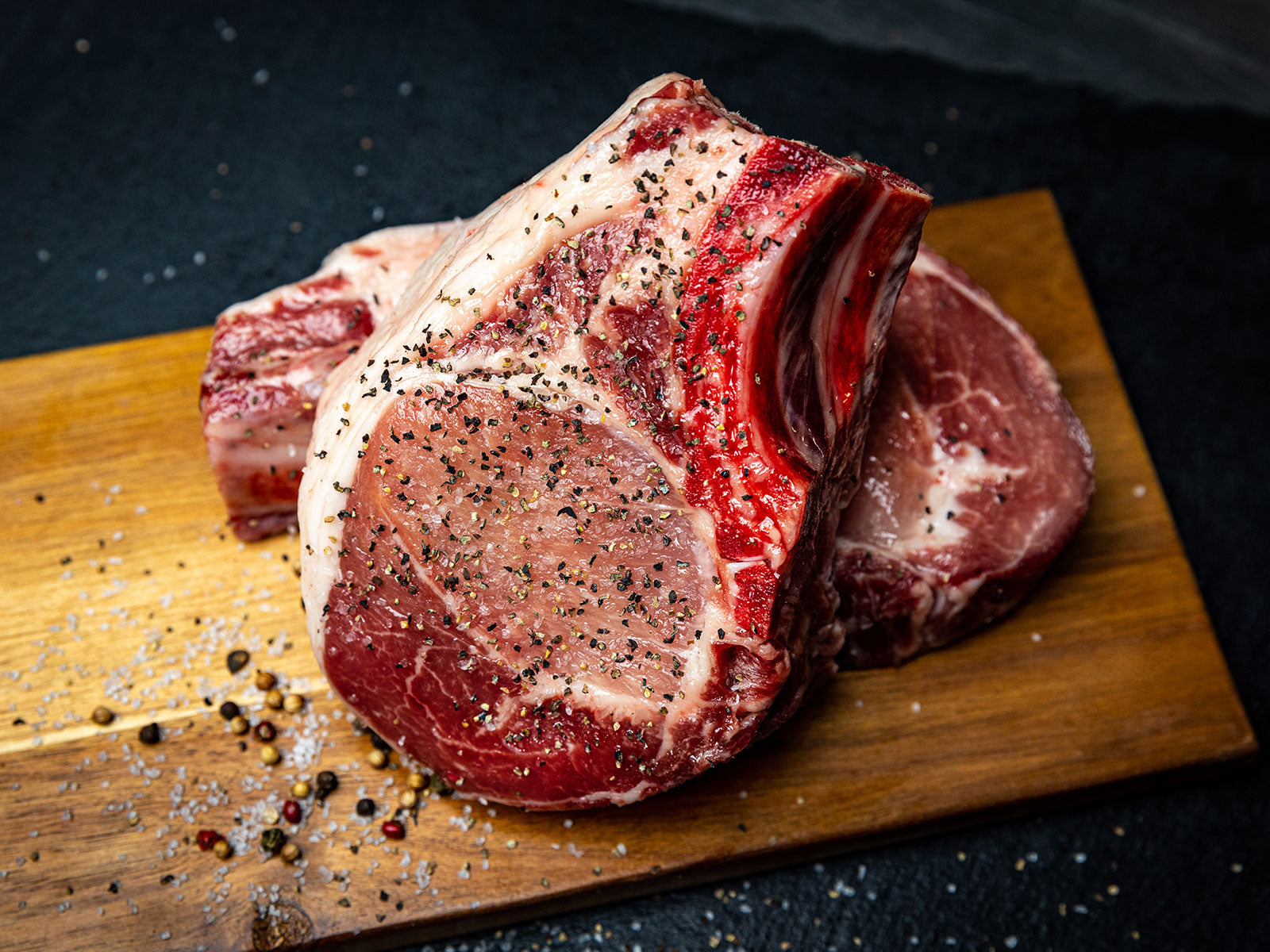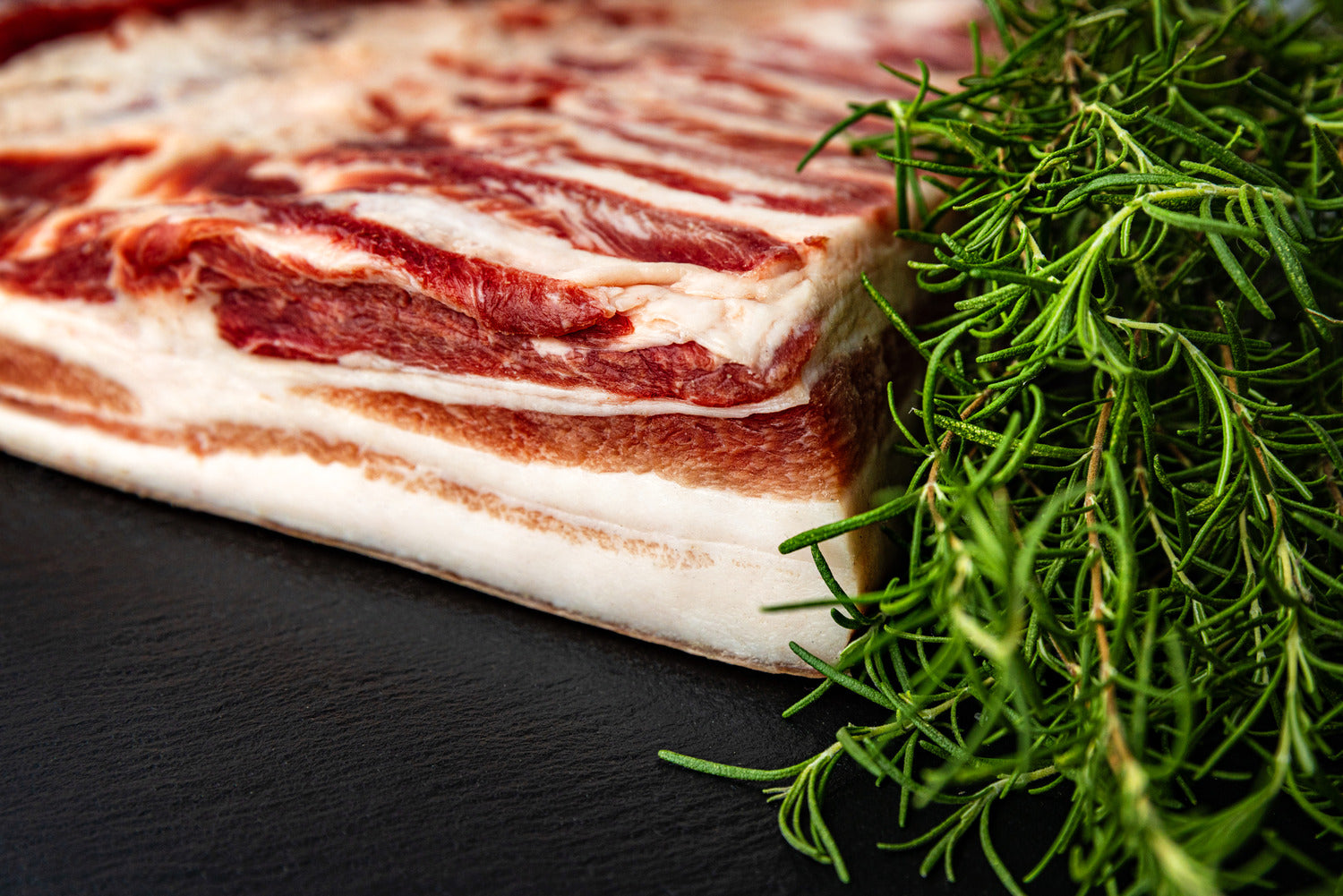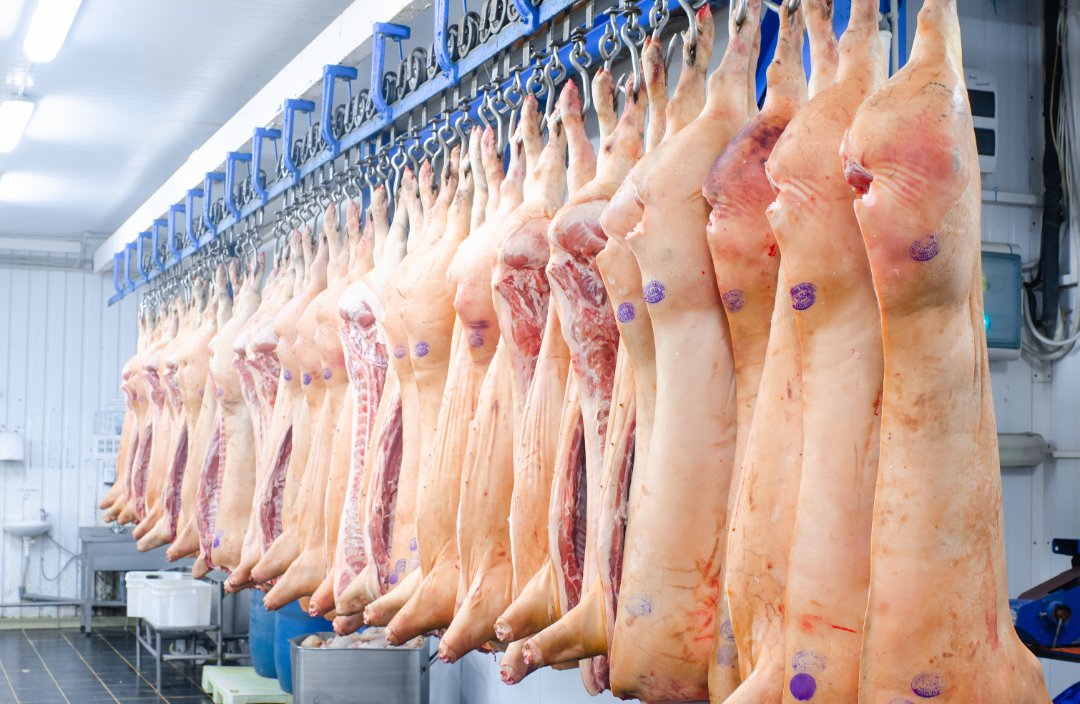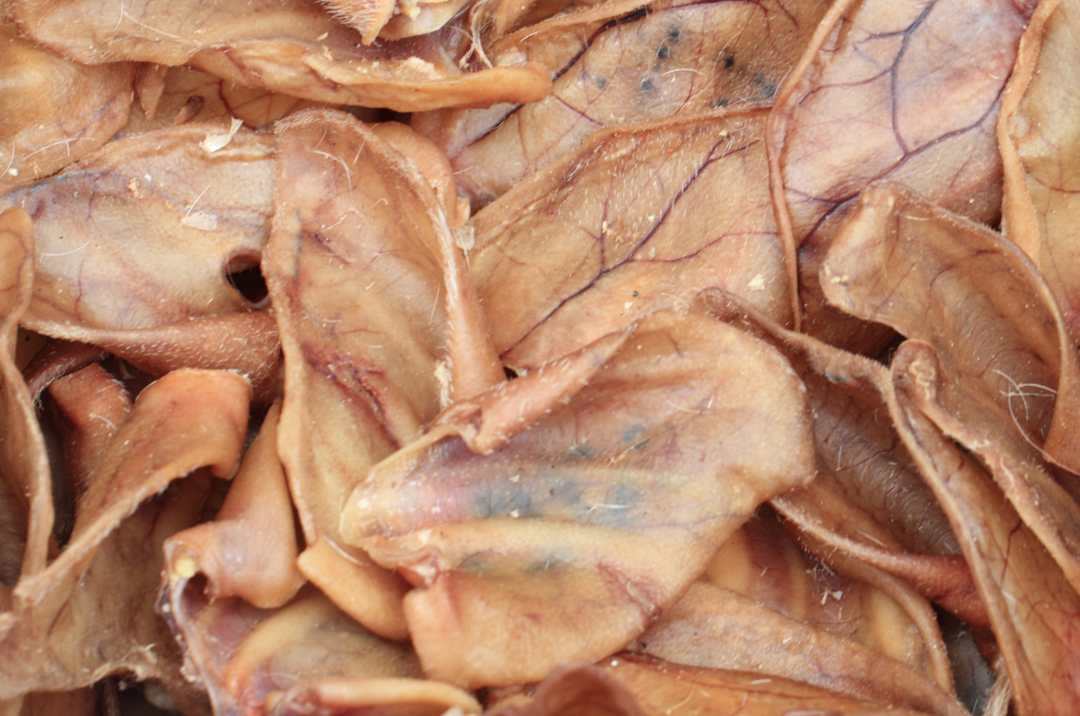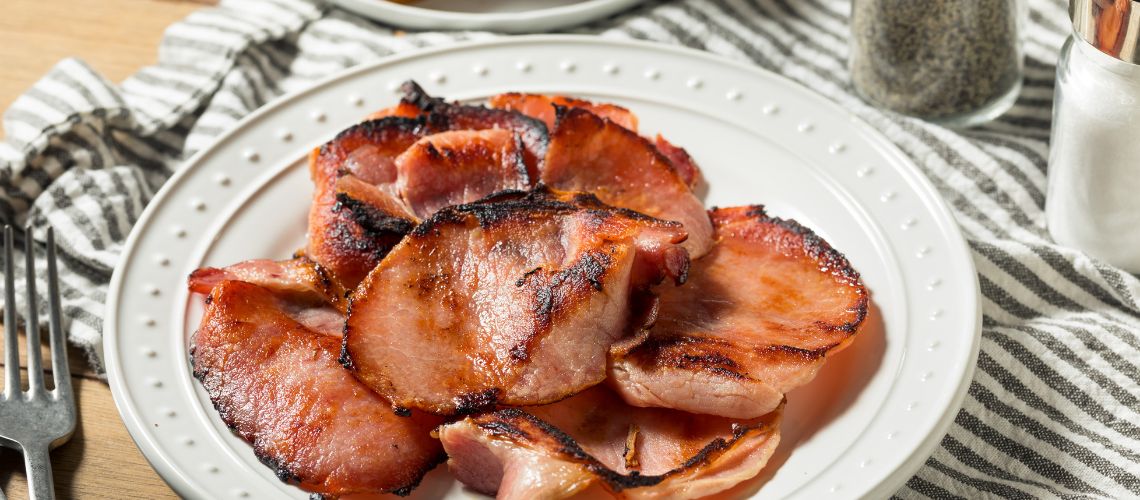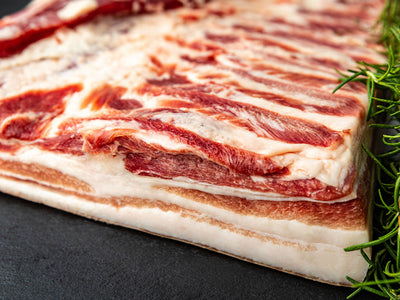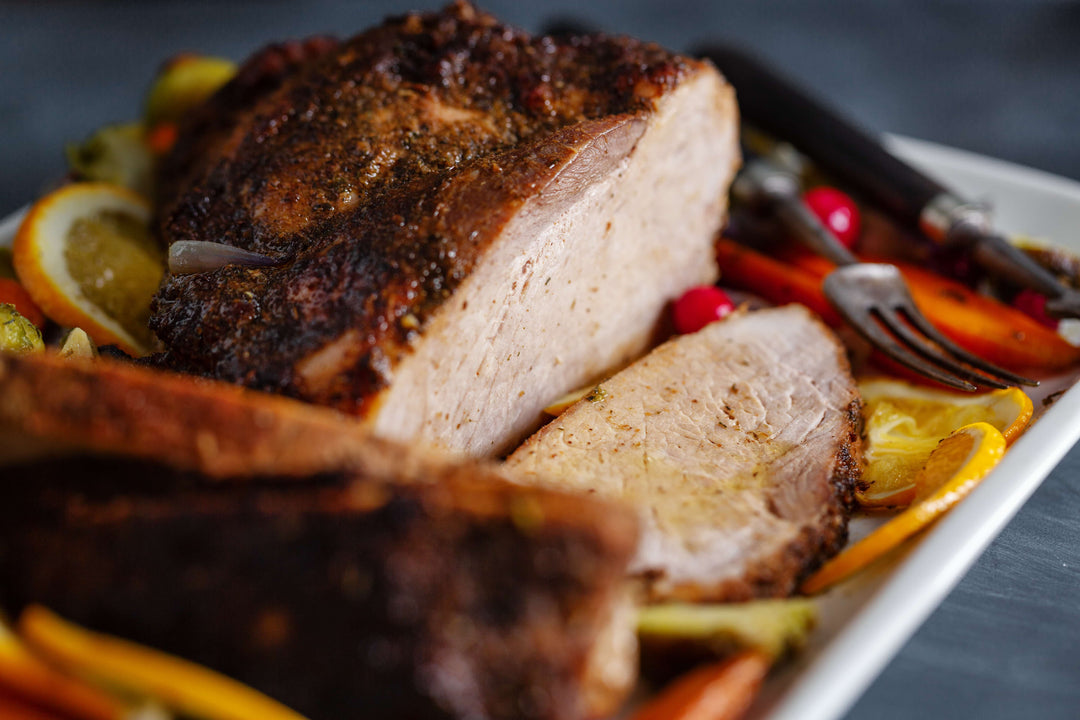Table Of Content
- What is Canadian Bacon?
- Nutritional Profile of Canadian Bacon
- Health Benefits of Canadian Bacon
- High protein content and muscle-building benefits
- Low in carbs and sugar, suitable for low-carb diets
- Rich in vitamin B12 for energy production
- Source of essential minerals like iron and zinc
- How to Incorporate Canadian Bacon into a Healthy Diet
- Healthy Cooking Methods
- Pairing Suggestions
- Considerations and Precautions
- Buy Red Field Ranch’s Canadian Bacon
Canadian bacon, a breakfast staple for many, gets a reputation for being a healthier alternative to regular bacon. But is it all just hype, or are there real benefits to this delightful breakfast meat? Dive into this post to uncover the truth about Canadian bacon's nutritional value and explore how it can fit into a balanced diet. We will examine its protein content, fat profile, and potential drawbacks. So, whether you're a Canadian bacon devotee or just curious, keep reading to learn everything you need to know!
What is Canadian Bacon?
Canadian bacon, also known as back bacon or peameal bacon, is a type of cured meat made from the pork loin, the leaner, meatier part of the pig located along its back. This differentiates it from traditional American bacon, which is typically made from the fatty belly of the pig. Below are some critical points about Canadian bacon:
Cut and Preparation: Canadian bacon is cut from the loin of the pig, making it leaner than regular bacon. It is often brined or cured in water, sugar, and salt and then smoked. This process gives it a distinctive flavor and texture.
Appearance and Taste: Canadian bacon looks more like ham than regular bacon. It is typically round and leaner, with a slightly chewy texture and a mild, sweet flavor.
Cooking Methods: Canadian bacon is pre-cooked and must only be heated through. and their are several option as well on how to cook Canadian bacon as It can be fried, grilled, or baked and is often used in breakfast dishes, such as Eggs Benedict, or as a pizza topping.
Other Names: In Canada, this type of bacon is sometimes referred to as back bacon. "peameal bacon" comes from the traditional practice of rolling the cured loin in ground yellow peas or cornmeal to preserve and prevent sticking.
Overall, Canadian bacon is a versatile and healthier alternative to regular bacon, appreciated for its distinct taste and lower fat content.
Nutritional Profile of Canadian Bacon
Canadian bacon is a leaner and healthier alternative to traditional American bacon, offering a distinct taste and a range of nutritional benefits. Here is a detailed breakdown of its nutritional profile per a typical 2-ounce (56 grams) serving:
- Calories: Approximately 89 calories
- Protein: Around 12 grams
- Total Fat: About 3 grams
- Saturated Fat: Roughly 1 gram
- Unsaturated Fat: Approximately 2 grams
- Cholesterol: Around 45 milligrams
- Sodium: Approximately 500-600 milligrams
- Carbohydrates: Around 1 gram
- Sugars: Less than 1 gram
- Fiber: 0 grams
- Vitamins and Minerals
- Vitamin B12: Significant amount, supporting red blood cell formation and neurological function
- Vitamin B6: Present in moderate amounts, essential for metabolism and brain health
- Vitamin B3: Contributes to energy production and DNA repair
- Iron: Important for oxygen transport in the blood
- Zinc: Supports immune function and metabolism
Health Benefits of Canadian Bacon
High protein content and muscle-building benefits
Canadian bacon is an excellent source of protein, with approximately 12 grams per 2-ounce serving. Protein is essential for muscle repair and growth, making Canadian bacon a valuable addition to regular physical activity or strength training. The high protein content also supports satiety, helping to control appetite and maintain a healthy weight.
Low in carbs and sugar, suitable for low-carb diets
Unlike many processed meats, Canadian bacon is low in carbohydrates and contains minimal sugar, making it ideal for low-carb and ketogenic diets. This can be particularly beneficial for individuals managing their blood sugar levels or those aiming to reduce overall carbohydrate intake.
Rich in vitamin B12 for energy production
Canadian bacon is a good source of vitamin B12, which plays a crucial role in energy production and maintaining healthy nerve cells. Vitamin B12 deficiency can lead to fatigue and anemia, so including Canadian bacon in your diet can help meet your daily requirements and support overall vitality.
Source of essential minerals like iron and zinc
Canadian bacon also provides essential minerals such as iron and zinc. Iron is vital for oxygen transport in the blood and preventing anemia, while zinc supports immune function, wound healing, and DNA synthesis. Incorporating Canadian bacon into your meals helps ensure adequate intake of these essential nutrients.
How to Incorporate Canadian Bacon into a Healthy Diet
Incorporating Canadian bacon into a healthy diet can enhance your meals while keeping nutrition in check. Below are some tips:
Healthy Cooking Methods
Opt for cooking methods that preserve its lean qualities—Grill or pan-sear Canadian bacon with minimal oil to keep it fat-free. Avoid deep-frying, which can add unnecessary calories and fats. Cooking it in an air fryer or baking it in the oven are also excellent choices for reducing added fats while maintaining flavor and texture.
Pairing Suggestions
- Add Canadian bacon to salads for a protein boost. It pairs well with mixed greens, avocado, and a light vinaigrette.
- Incorporate it into omelets with vegetables like spinach, tomatoes, and bell peppers for a nutrient-dense breakfast.
- Use it in whole-grain sandwiches or wraps with plenty of fresh vegetables and a light spread or mustard.
- Stir into soups or stews for added flavor without compromising health.
By using Canadian bacon in the suggested ways, you can enjoy its flavor while maintaining a balanced and heart-healthy diet.
Considerations and Precautions
- Look for Quality Ingredients: Opt for brands that use natural curing methods and minimal additives or preservatives. This helps ensure you get a product with fewer artificial ingredients and better quality.
- Processed Meat: As processed meat, Canadian bacon can contain preservatives and additives that may not be ideal for some individuals. Opt for brands with minimal additives or natural curing methods.
- Balanced Diet: While Canadian bacon is leaner than traditional bacon, it should still be part of a balanced diet. To maintain an overall nutritional balance, it should complement a variety of fruits, vegetables, whole grains, and other lean proteins.
- Portion Control: Consuming it in moderation as part of a diverse diet helps prevent over-reliance on any food source.
- Dietary Restrictions: Individuals with certain health conditions should be cautious about their sodium intake and may need to limit their consumption of Canadian bacon.
Considering these factors, you can enjoy Canadian bacon as a part of a healthy diet while managing potential health risks.
Buy Red Field Ranch’s Canadian Bacon
Discover the taste of premium Canadian bacon at Redfield Ranch! Our Canadian bacon offers lean, high-quality protein with a deliciously mild flavor. Perfect for any meal, it's crafted with natural curing methods for a healthier option. Elevate your dishes with our top-notch, flavorful Canadian bacon today!
Frequently Asked Questions
Canadian bacon typically contains around 500-600 milligrams of sodium per 2-ounce serving, which is lower than traditional bacon.
Due to its lower fat content than traditional bacon, Canadian bacon can be part of a heart-healthy diet when consumed in moderation.
Canadian bacon can be incorporated into healthy meals by adding it to salads, omelets, whole-grain sandwiches, or as a lean protein topping for pizzas and baked dishes.
Canadian bacon provides essential vitamins and minerals, including vitamin B12, niacin (vitamin B3), iron, and zinc, supporting overall health and metabolism.
The processing of Canadian bacon involves curing and sometimes smoking, which can add sodium but does not significantly alter its overall nutritional value, maintaining its lean protein content and essential nutrients.
